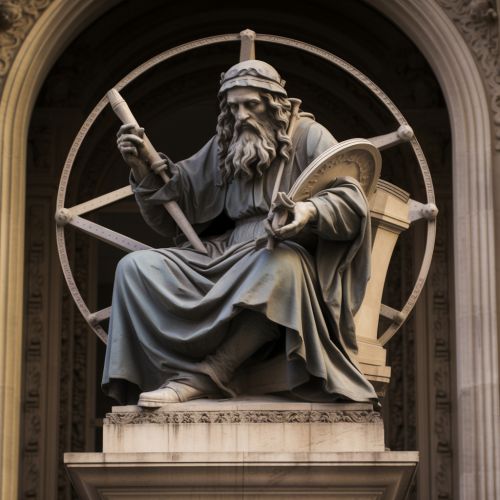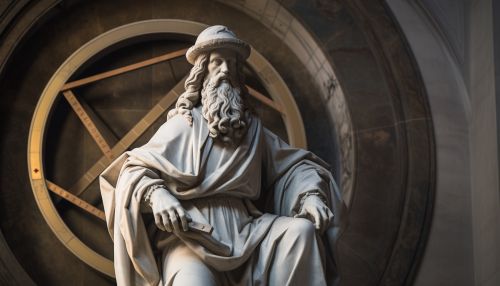Euclid
Early Life and Education
Euclid, also known as Euclid of Alexandria, was a Greek mathematician who lived during the Hellenistic period. His birthplace is not known with certainty, but it is believed that he was born around 300 BC, possibly in Tyre or Alexandria. His name, Euclid, is derived from the Greek words "eu" meaning good and "kleid" meaning glory.
Euclid's education is not well-documented, but it is generally believed that he was a student of the followers of Plato. This is based on the similarity of his mathematical and philosophical ideas to those of the Platonic school. It is also suggested that he might have studied in Athens, the center of Greek learning at the time.
Contributions to Mathematics
Euclid is best known for his work in geometry, particularly for his treatise, the Elements. This work, composed of thirteen books, has been considered the most successful and influential textbook in the history of mathematics. It presents the foundations of geometry and number theory in a systematic and rigorous way.
The Elements begins with definitions, postulates, and common notions. These form the basis for the proofs of various geometric theorems. Euclid's five postulates, in particular, have been the subject of much study and discussion. The fifth postulate, known as the Parallel postulate, states that if a straight line crossing two other straight lines makes the interior angles on the same side less than two right angles, the two straight lines, if extended indefinitely, meet on that side on which the angles are less than the two right angles. This postulate has been the basis for the development of non-Euclidean geometries in the 19th century.
Euclid's Elements also includes significant work on number theory, including the first known proof of the infinitude of prime numbers. It also contains the earliest known systematic discussion of the theory of proportions, which was later extended by mathematicians such as Eudoxus and Archimedes.
In addition to the Elements, Euclid wrote several other works, including the Data, the Optics, the Phaenomena, and the Division of Figures. However, these works are less well-known and less influential than the Elements.


Influence and Legacy
Euclid's work has had a profound influence on the development of mathematics. His systematic and rigorous approach to mathematical proofs set a standard for mathematical reasoning that is still followed today. His Elements served as the main textbook for teaching geometry for over two thousand years.
Euclid's influence extends beyond mathematics. His logical and deductive approach to knowledge has influenced various fields, including philosophy, science, and engineering. His work has been studied and commented upon by many great thinkers, including Isaac Newton, René Descartes, and Albert Einstein.
Despite the passage of over two millennia, Euclid's work remains relevant today. His Elements continues to be studied and his geometric and number theoretic proofs are still taught in schools. His work serves as a foundation for many areas of modern mathematics, including geometry, number theory, and algebra.
